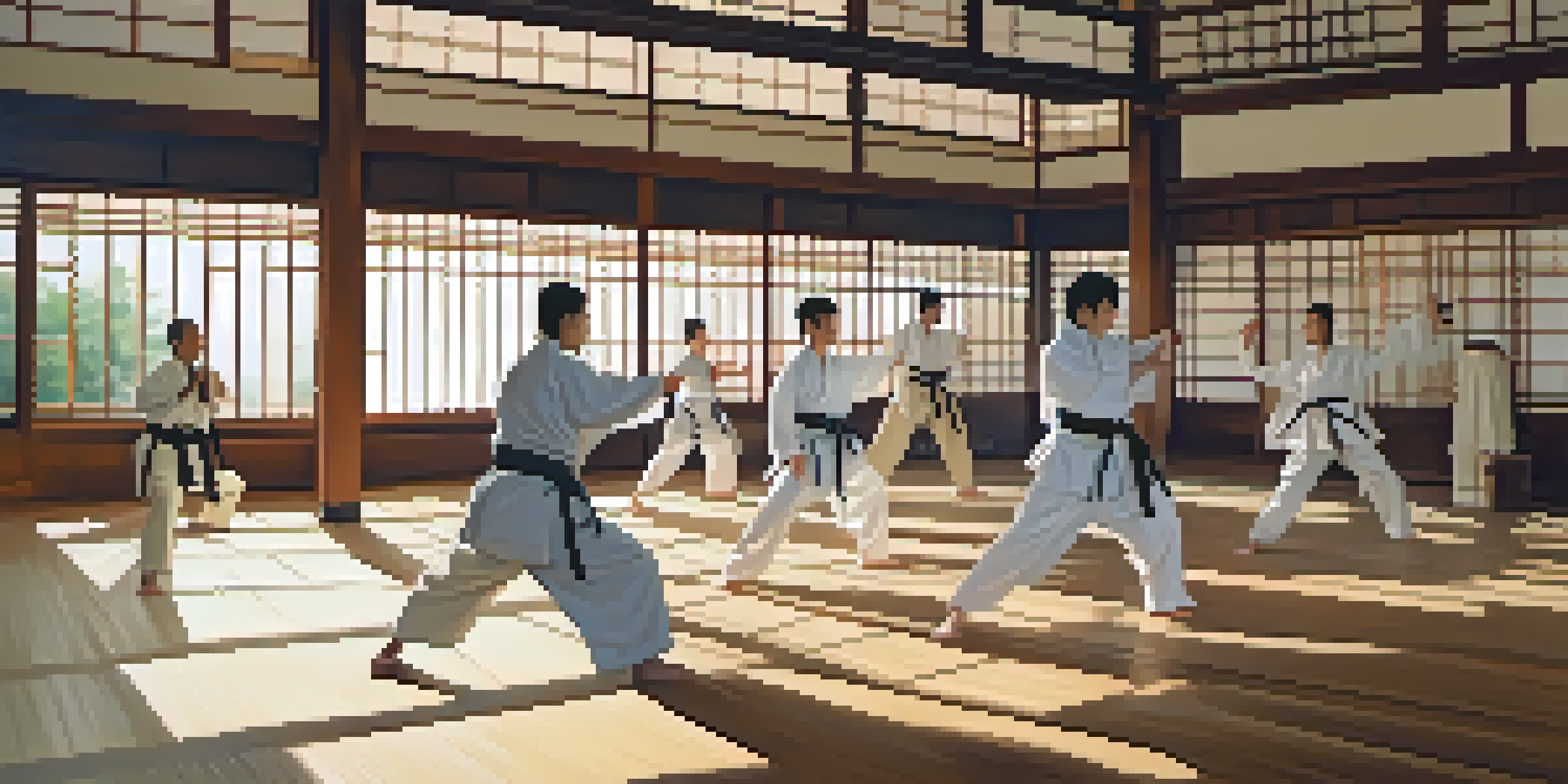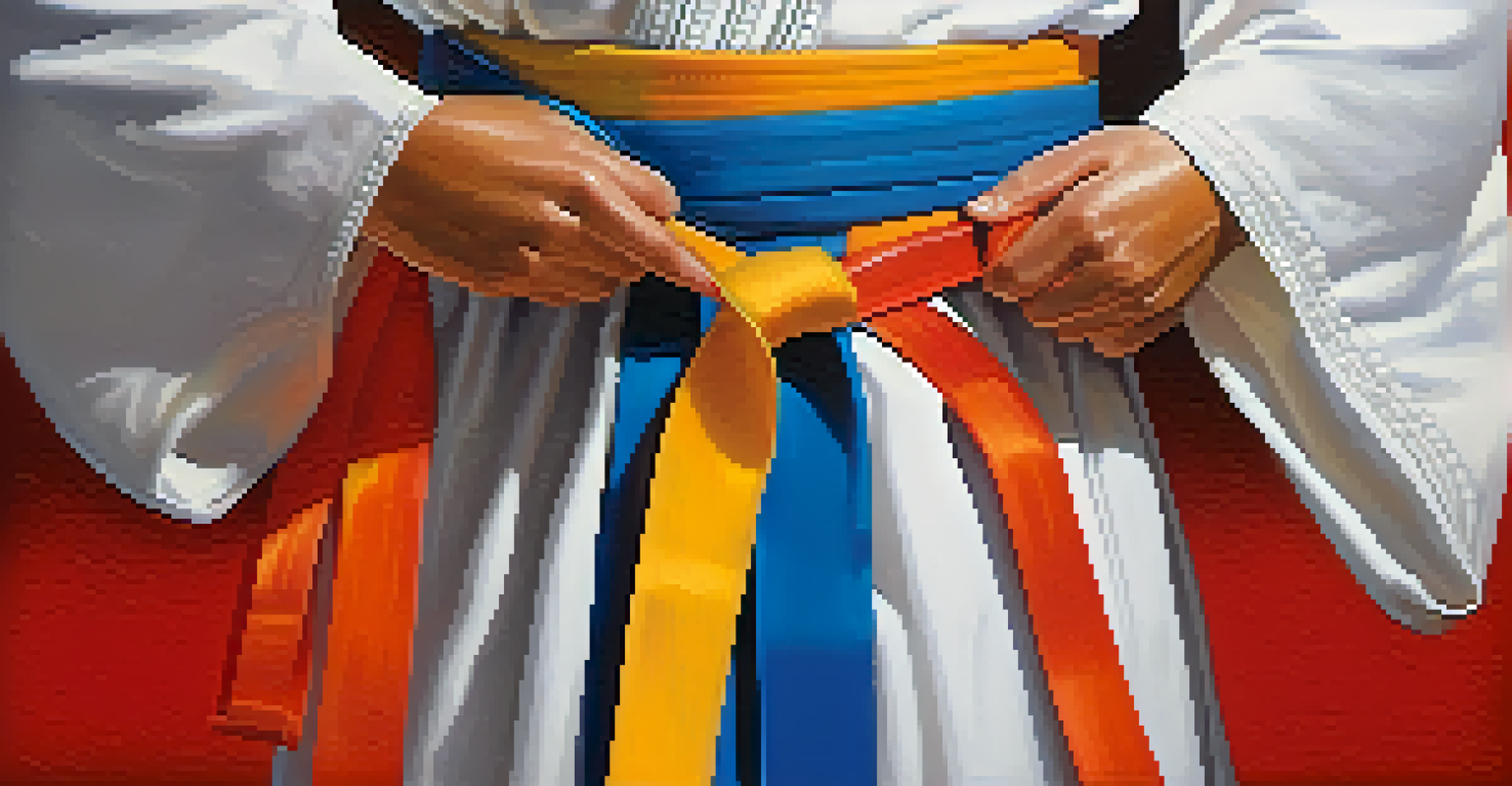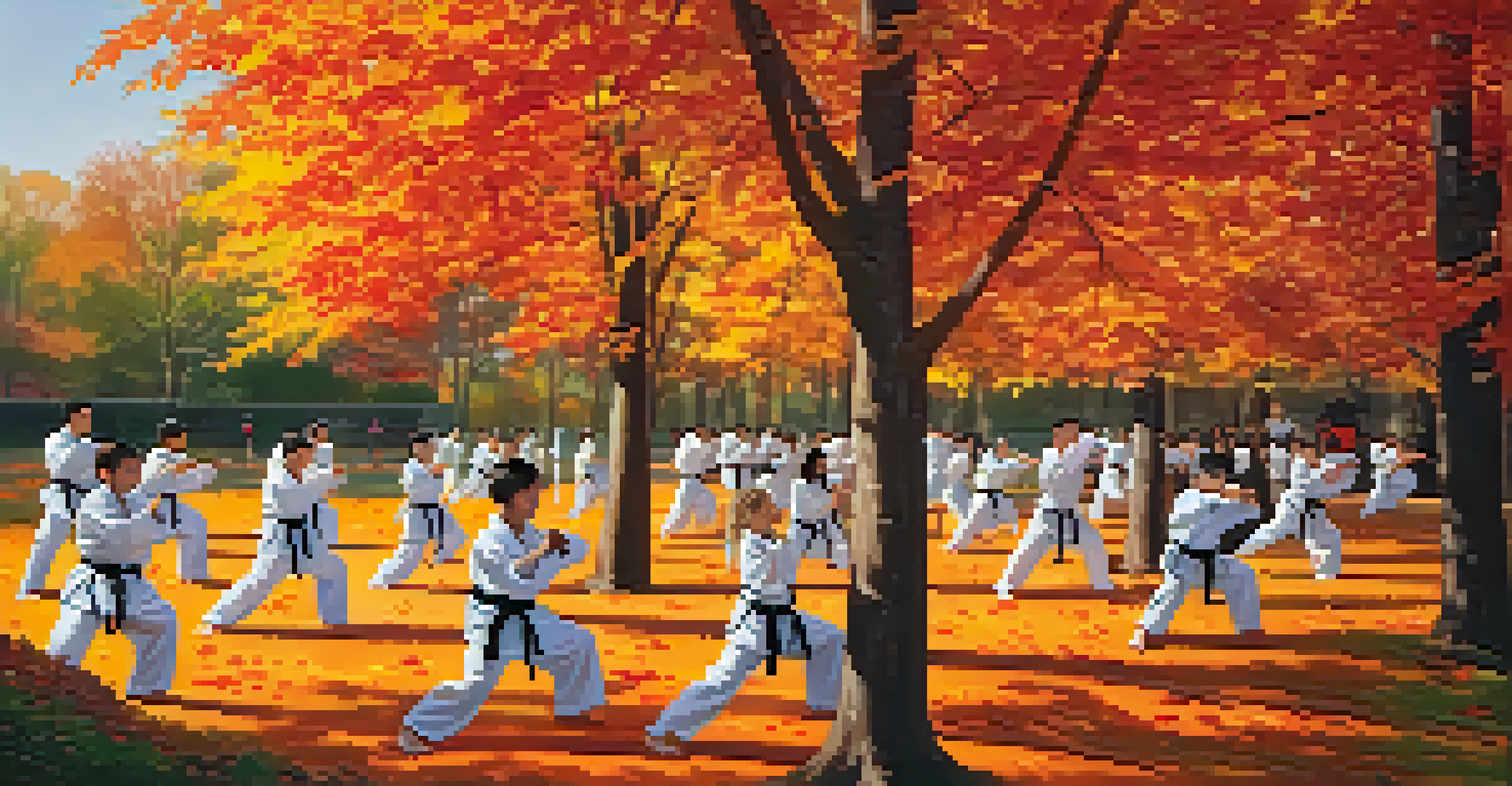The Therapeutic Benefits of Martial Arts in Rehabilitation

Understanding Martial Arts and Rehabilitation Connection
Martial arts are often associated with combat and competition, but they also offer profound therapeutic benefits, especially in rehabilitation. Rehabilitation involves helping individuals recover from injuries or conditions, and martial arts can play a pivotal role in this process. The physical and mental aspects of martial arts combine to create a holistic approach to recovery.
Martial arts is not about the enemy outside, but the enemy within. It teaches us to conquer our fears and build resilience.
When we think of rehabilitation, we might imagine physical therapy sessions filled with repetitive exercises. While effective, these can sometimes feel monotonous. Martial arts introduce dynamic movements and techniques that not only make rehab more enjoyable but also encourage participants to engage more fully in their recovery journey.
Moreover, martial arts foster a sense of community and support among practitioners. This social aspect can greatly reduce feelings of isolation that often accompany recovery, making the process feel less daunting and more empowering.
Physical Benefits of Martial Arts in Rehabilitation
One of the most notable benefits of martial arts is the improvement in physical strength and flexibility. As individuals practice various techniques, they engage multiple muscle groups, enhancing overall fitness. This is particularly beneficial for those recovering from injuries, as it helps rebuild strength progressively and safely.

Additionally, martial arts training often incorporates balance and coordination exercises. These elements are crucial for rehabilitation, especially for individuals recovering from surgeries or those who may have experienced falls. Improved balance can significantly reduce the risk of future injuries, making martial arts a smart choice for rehab.
Martial Arts Enhance Physical Recovery
Practicing martial arts improves strength, flexibility, balance, and cardiovascular health, making it an effective addition to rehabilitation.
Finally, the cardiovascular benefits of martial arts shouldn't be overlooked. Engaging in these activities elevates heart rates, promoting better circulation and overall heart health. This can be especially important for individuals who have been sedentary due to their injuries.
Mental Health Benefits of Martial Arts in Rehab
Beyond the physical advantages, martial arts have significant mental health benefits that contribute to rehabilitation. Practicing martial arts can reduce stress and anxiety, providing a constructive outlet for emotions. This is particularly beneficial for individuals who may feel overwhelmed during their recovery process.
The journey of a thousand miles begins with one step.
The discipline required in martial arts training also fosters a sense of control and focus. As individuals learn techniques and set goals, they cultivate a mindset geared towards perseverance and resilience. This shift in mindset can be transformative, helping individuals tackle not just their physical challenges but also emotional hurdles.
Moreover, the meditative aspects of martial arts, such as breathing exercises and mindfulness, promote mental clarity. These practices can enhance self-awareness and emotional regulation, which are essential for anyone navigating the ups and downs of rehabilitation.
Building Confidence Through Martial Arts
Rehabilitation often involves facing fears and overcoming challenges, which can be daunting. Martial arts provide a structured environment where individuals can gradually build their confidence. As they learn and master new skills, they experience a sense of accomplishment that boosts self-esteem.
This newfound confidence can have a ripple effect, positively impacting other areas of life. Individuals may find themselves more willing to engage in social activities or take on new challenges outside of martial arts. This empowerment is a core aspect of the healing journey.
Mental Health Boost Through Martial Arts
Martial arts provide stress relief, foster resilience, and enhance mental clarity, significantly benefiting individuals during their recovery process.
In martial arts, failure is viewed as a part of the learning process. This perspective helps individuals embrace setbacks as opportunities for growth, further enhancing their resilience and self-belief.
Social Connections and Support in Martial Arts
The community aspect of martial arts is a crucial element for those in rehabilitation. Joining a martial arts class introduces individuals to a supportive network of peers who share similar interests and goals. This camaraderie can help foster friendships that provide emotional support during the recovery journey.
Training together creates a sense of belonging, reducing feelings of isolation that can accompany rehabilitation. Participants often encourage one another, share their experiences, and celebrate each other's progress, reinforcing a positive environment.
Moreover, instructors often serve as mentors, guiding students through their challenges. This mentorship can be especially valuable for individuals who may lack support in other areas of their lives.
Setting Goals and Achieving Milestones in Martial Arts
Goal-setting is a fundamental aspect of both martial arts and rehabilitation. In martial arts, individuals are encouraged to set personal goals, whether it's mastering a technique or achieving a new belt level. This structured approach to goal-setting aligns well with rehabilitation objectives, providing clear milestones to work towards.
As participants make progress and achieve their goals, they gain a sense of purpose and direction in their recovery. Celebrating these milestones, no matter how small, reinforces motivation and commitment to the rehabilitation process.
Community Support in Rehabilitation
The supportive community within martial arts fosters connections and mentorship, reducing feelings of isolation and empowering individuals in their recovery journey.
Additionally, the practice of setting and achieving goals in martial arts instills valuable life skills, such as patience and perseverance. These lessons can extend beyond the dojo, empowering individuals to tackle challenges in other aspects of their lives.
Incorporating Martial Arts into Rehabilitation Programs
For those interested in the therapeutic benefits of martial arts, it's important to explore how to incorporate it into rehabilitation programs. Many rehabilitation centers are beginning to recognize the value of martial arts and may offer classes or workshops. It's worth discussing with healthcare providers about integrating martial arts into a personalized rehabilitation plan.
Individuals can also seek out local martial arts studios that offer programs tailored to beginners or those recovering from injuries. Many instructors are trained to work with students at various fitness levels and can modify techniques to ensure safety and effectiveness.

Moreover, it’s essential to approach martial arts with the right mindset—viewing it as a supplement to traditional rehabilitation methods, rather than a replacement. The combination of martial arts and conventional therapies can create a comprehensive approach to recovery.